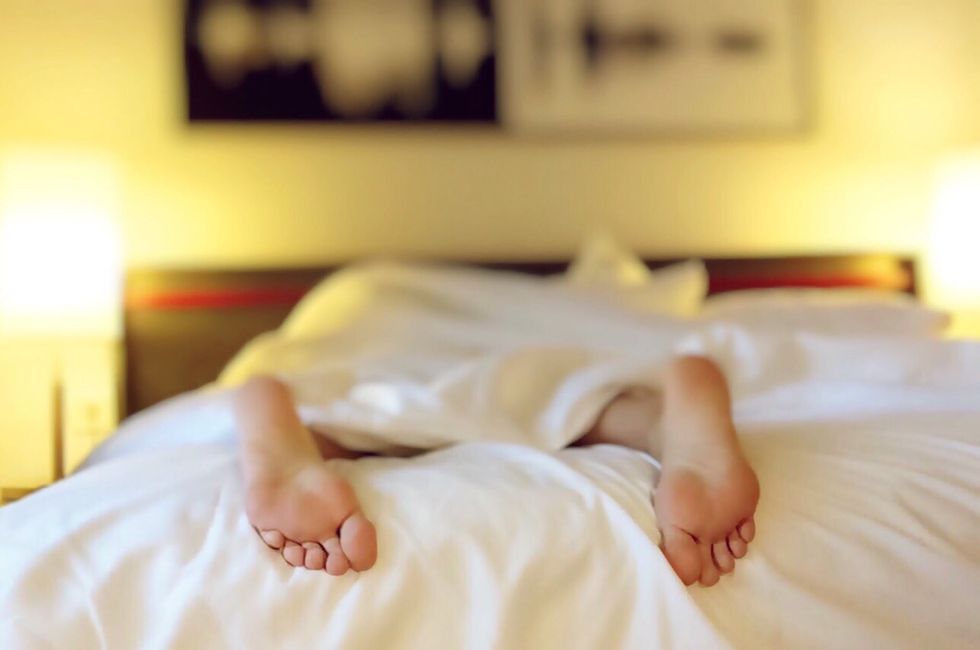Nobody likes skimping on sleep, but chances are you’ve done it. Whether to study for an exam, finish a tough project, or you just DANCED IN THON FOR 46 HOURS, pulling an all-nighter (or an all-weekender?) happens.
And there’s no denying that even mild sleep deprivation has negative effects, including bad moods, bags under the eyes, unfortunately poor brain function, and health issues too.
And there's always the fear of falling asleep in class.
But don't worry, because there are steps you can take to minimize the damage of no sleep.
So since President Barron hasn't yet deemed the Monday after THON a Penn State holiday, here is how you can survive the days following THON and recover ASAP:
1. Sleep in:
The best thing you can do for your body after you've been up all night is to sleep in. Aren't those the best to words to a college student's ears?
Try your best to go to bed early for the next few days following the weekend and just let yourself sleep, avoid alarm clocks if possible.
And I am not advocating skipping classes, but if your 8 am isn't mandatory, it might not be a bad idea to not go.
2. Take a nap:
Naps are a college student's best friend.
Try strategic napping, don't sleep for 2 or 3 hours, instead a nap that last for 15-20 minutes can boost your energy and alertness.
Nap if you can but don't overdo it. Try to sleep at night as much as possible so you don't throw off your circadian rhythm, your sleep cycle.
You can also try caffeinated naps. Drink 1 small cup of your caffeine of choice, then take a 15-20 minute nap, and then wake up and get on with the rest of your day. For some, these caffeinated naps add the extra little push they need to get up after a nap.
3. Caffeine, with care:
When you’re tired, it’s tempting to use coffee or energy drinks to take the place of sleep you didn’t get the night before. But you already know that because come on, we are college students, we always try to replace sleep with caffeine.
The best way to "use" caffeine is to drink small amounts throughout the day. A larger amount will work for a short amount of time, but will cause a larger crash in the end.
So your usual trenta Caramel Macchiato with 2 extra shots from Starbucks? Maybe not this week.
Remember to go easy on the caffeine, even though an IV drop of coffee does sound heavenly.
4. Eat wisely:
Choosing your meals wisely is a must when you need extra energy after a long night. Meals with protein, fiber and complex carbs will help keep you energized and going for a long time.
Try whole grains, fish, chicken, nuts, eggs, dairy, fruits, and veggies.
Healthy snacks are a good idea, and avoid skipping meals.
Sleep deprivation commonly leads to binging on junk food but healthy meals and snacks in moderation will make you feel significantly better.
And don't forget water.
(Now drink more water)
And I know we are college students, but seriously, no alcohol until your body is back on track. Drinking alcohol does your body zero favors.
5. Be active:
Physical activity and being outside around bright light are other energy-boosting activities.
This week isn't the week to increase weights at the gym or try a tough work out. But instead wake up, stretch and go for a short jog or light workout.
And remember, physical activity helps you sleep better later at night.






















